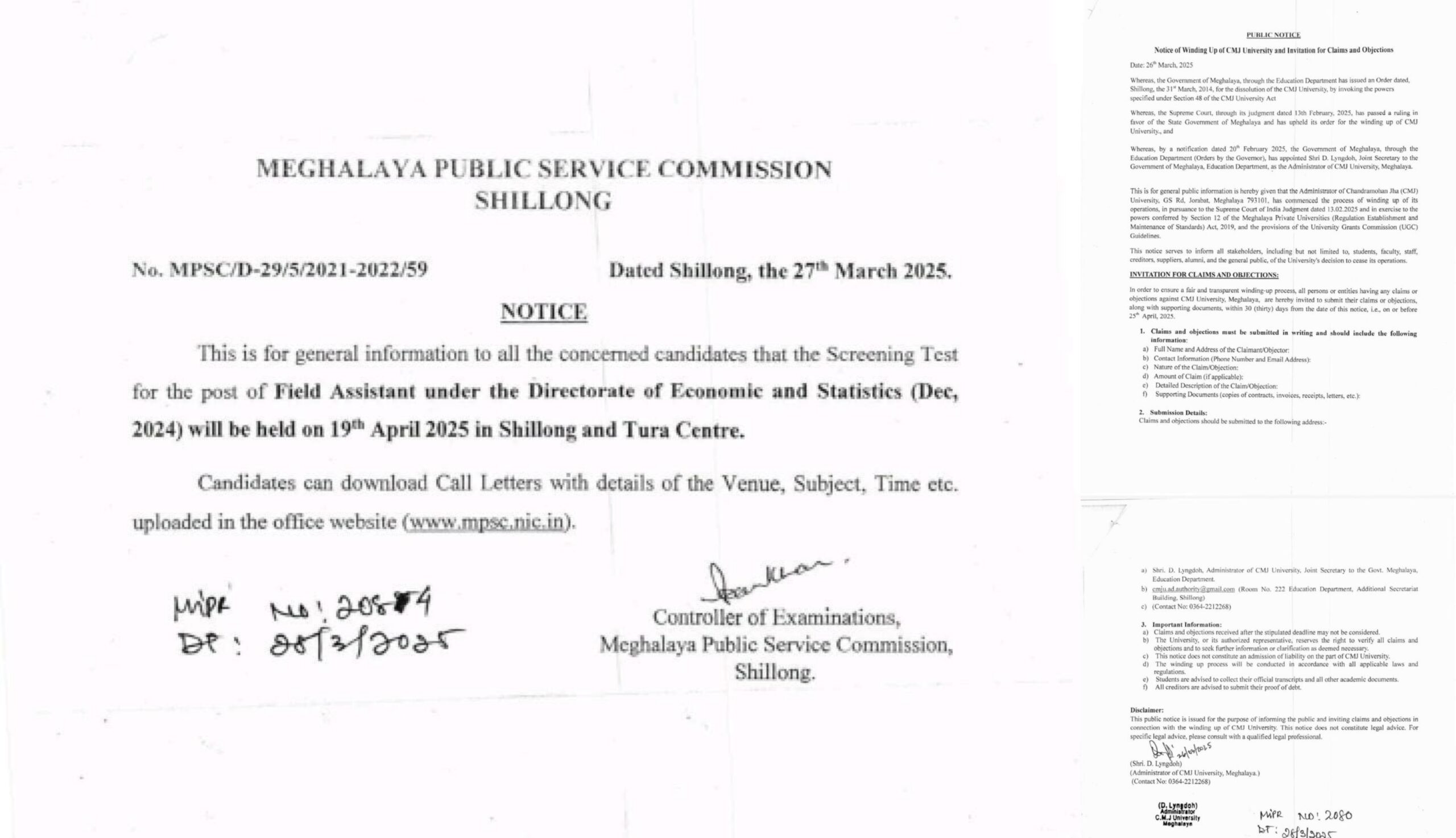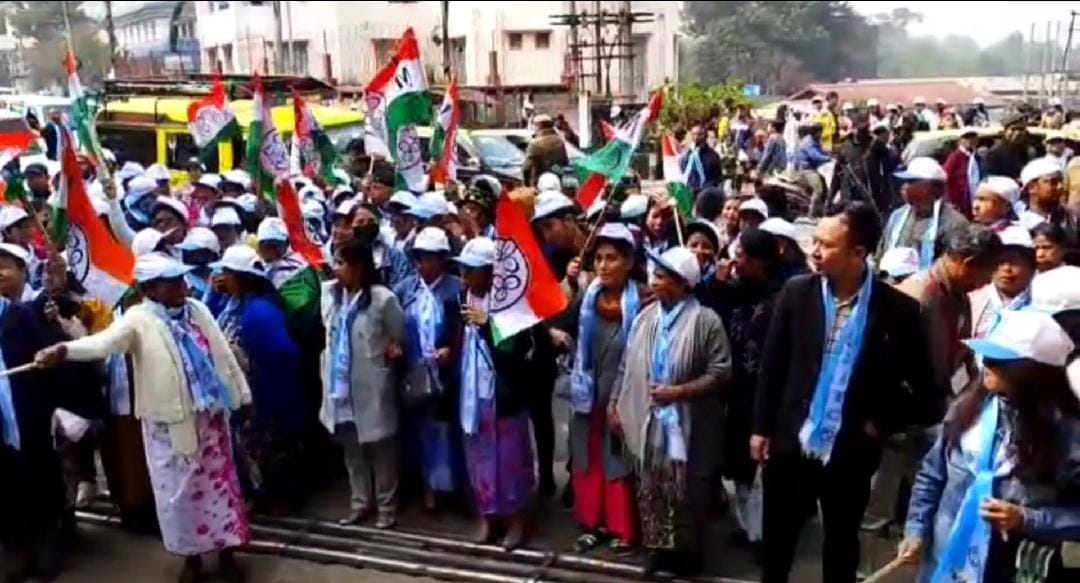A lot of uproar is happening around representation of women candidates as three states of Northeast will go for polls this month. For the election to the 60 members Meghalaya Legislative Assembly, there are only 36 women candidates, while the numbers of male candidates whose names are cleared after the scrutiny are 339. Interestingly those women who are active in electioneering are actually from politically well to do families. The negligible presence of women from marginalised section in this political combat zone never goes unnoticed.
A total of 375 nominations were found to be valid after the scrutiny process was conducted successfully in all 12 districts across 60 ACs of Meghalaya on Wednesday
Meghalaya has a massive participation of women voters and a plausible active engagement of women activists at grassroots level. However as one move upwards in the political ladder, women become scant and it is true for all the states of the region.
Meghalaya and Nagaland will go for polls on February 27, Tripura votes on February 16, the total electorate for the upcoming polls is 21,61,129, with 10,68,801 male and 10,92,326 women voters.
Despite the number of female voters outnumbering their male counterparts, the gap between the number of women in the social sphere and political decision making centres is stark.
Senior female Politician of Meghalaya, also a longest serving female legislator of the State legislative assembly Dr. M Ampareen Lyngdoh said that it is very difficult for a woman to survive in politics.
Commenting on the low participation of women in the upcoming electoral battle, Lyngdoh said, “Like mainland India, North East is no different. You may say that there are tribal populations across NE India where women occupy a more important role in politics or any other strata of society, NE is also like mainland India. It is very difficult for a woman to survive in active politics, candidature politics. Women will be used for any other reasons but to bring a woman and support that woman so that she becomes a successful politician faces the same kinds of hurdles that any other women in any part of this country will face.”
Only 36 women candidates will be contesting in the upcoming Assembly elections to be held on February 27.
Political participation is worse for women from marginalised communities. Patriarchy, as a system, works by dividing resources unequally which tilts the locus of power towards men. Angela Rangad, female candidate from KAM Meghalaya shares how only females from political families find their way into politics whereas women from marginalised communities still struggle.
Rangad said it is not that women are shying away but the fact is it is a patriarchal world.
“Meghalaya even though we boast to be matrilineal, I have always maintained that matrilineality is just about lineage and heritance but when it comes to sharing of power especially decision making power, women in Meghalaya are far behind. We are matrilineal within very patriarchal structures,” she said.
She said, “And it is the same over the world also if you look at it is a patriarchal world, most systems, most structures are gender bias towards men and especially when it comes to power, we know that social conditioning meant that people think that there are certain roles that women can do and there are certain roles that are reserved for men. That is obviously changing but when it comes to electoral politics I think it is still very tough.”
Rangad said, “They will have in name and just a token a women’s wing which remains dormant and does not do much most of the time, they are activated only when they have to do certain protests or when they have to serve tea or when there is an upcoming election. So there is no building of that kind of women leadership even within political parties.”
Elgiva Rynjah, TMC candidate from North Shillong constituency said the state needs more female representatives.
“Meghalaya being the matrilineal society, I would request my other female friends and other females who has capacity to start coming into the public domain and should come forward as the state requires more number of female representatives,” She added.
RTI activist Agnes Kharshing shares her views on not only participation of women in politics but also in village durbars. The politics are not transparent any more as it has become murky. She advocates women should be given more space in politics as well as in the village Durbars.
Infact this dismaying scene is visible in the entire region, it may be recalled; Late Usha Barthakur was the first woman MLA of undivided Assam elected from the Samaguri constituency in Nagaon district in central Assam in the first elections in 1952. In some years, such as 1957 and 1978, only one woman was elected to the Assam assembly. Late Syeda Anwara Taimur made history by becoming the only woman chief minister of the state holding office between December 6, 1980 to June 30, 1981. The Women’s Reservation Bill, which mandates 33% seats for women was passed in the Rajya Sabha in 2010 but failed to garner enough support to be passed in the Lok Sabha. The bill has, since then, lapsed.


